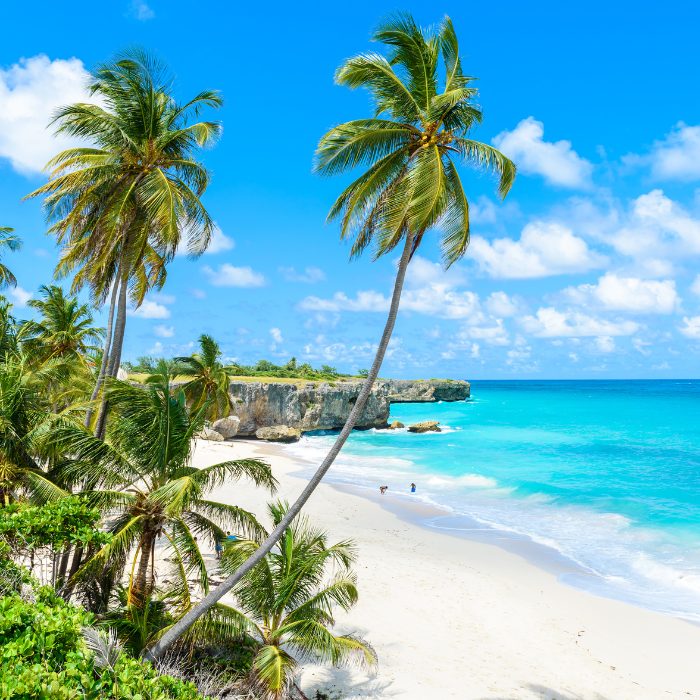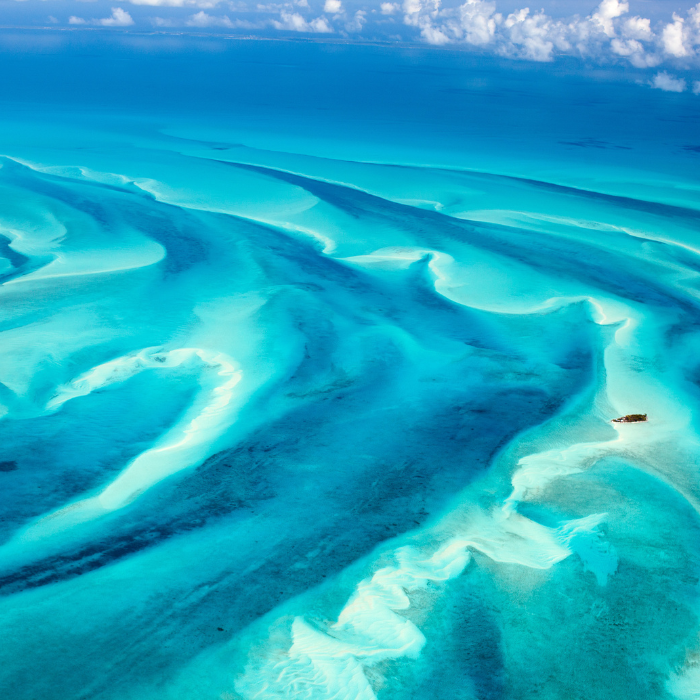EXPLORE
Grenada
With an inviting, laid-back vibe, Grenada is the perfect getaway for beach lovers and keen divers/snorkelers. It’s known as the “Spice Island” thanks to its prosperous spice and nutmeg production. The island is also a significant exporter of cocoa and embraces its chocolatey talents with a festival dedicated to the sweet treat that takes place each May. And, of course, there is also lots of rum! Grenada is home to one of the most beautiful national parks in the Caribbean – Grand Etang National Park and Forest Reserve – and the famously beautiful Grand Anse Beach. One of the country’s top attractions is submerged in Molinere-Beauséjour Marine Reserve, where travellers can dive to see the Underwater Sculpture Park.
Download location map



Weather
The start of the year has the coolest weather in Grenada, with temperatures of 25°C rising to 26°C by March. This part of the year experiences some of the least rainfall, with March having just 2″.
Best Time for Festivals, Events and Water Activities
25 - 26°C
AVG Temperature
7 - 8 HRs
Sunshine
2 - 3"
AVG Monthly Rainfall
26 - 28°C
AVG Sea Temperature
By April, Grenada reaches its hottest, averaging at 27°C and staying there until the autumn months. As spring transforms into summer, rainfall rises slightly as the wet season officially starts in June.
Best Time for Cultural Experiences and Exploring Natural Beauty
27°C
AVG Temperature
7 - 8 HRs
Sunshine
4 - 8"
AVG Monthly Rainfall
27 - 29°C
AVG Sea Temperature
Temperatures stay hot at 27°C, with an average of 18 rainy days each month as Grenada reaches the peak of its wet season. This is the time when tropical storms can happen.
Best Time for Exploring Natural Beauty
27°C
AVG Temperature
6 - 7 HRs
Sunshine
9 - 10"
AVG Monthly Rainfall
28 - 30°C
AVG Sea Temperature
The country is still hot and wet at the end of the year, though the temperature decreases slightly in December at 26°C, with less rainfall but just as many rainy days.
Best Time for Cultural Festivals
26°C
AVG Temperature
7 - 8 HRs
Sunshine
5 - 8"
AVG Monthly Rainfall
28 - 29°C
AVG Sea Temperature


GEOGRAPHY
Between the Caribbean Sea and the Atlantic Ocean, Grenada is the largest island in an island chain known as The Grenadines. The island is part of the Lesser Antilles Island arc, just above Trinidad and Tobago and Venezuela. Like most of the Lesser Antilles Islands, Grenada is an island formed mostly from volcanic rock and was created when an oceanic plate slid beneath the continental plate in the Pliocene period, forcing the land above the sea.


HISTORY
It isn’t clear when the island of Grenada was first inhabited. Some evidence indicates that people first settled on the island as early as 3760 BC, but concrete evidence of human habitation dates to around 260 AD. It’s thought that Christopher Columbus spotted Grenada on his third voyage to The New World, but it wasn’t colonised until 150 years later when the French settled on the island in 1649. Grenada was eventually captured by the British from the French in 1762 during the Seven Years’ War and became independent from Britain in 1974.






